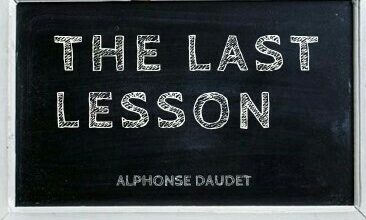The Rocking-Horse Winner is a short tale written by D. H. Lawrence. It first appeared in Harper’s Bazaar in July 1926, and it later did so in Lawrence’s first collection of collected short tales.
The Rocking-Horse Winner | Summary
The story starts with a young woman who seems to have bad luck in life. Primarily due to the fact that her expenditures exceed her income. She and her husband desire to live a life of luxury, but sadly she does not earn enough to meet all of her hedonistic, shallow material needs.
The family’s overall expenses do not match their income. Paul’s mother works as a commissioned artist and there is always this subtle nuance inside the house of money not being enough.
Paul, one of her children, and his two sisters swear they can hear the home whispering, “There must be more money,” and they can feel her anxiousness. Paul opens up to his uncle Oscar Cresswell about the story of his gardener Bassett and their horse racing gambling. He has been using his pocket money to place bets, and he has so far won and saved $300. He occasionally claims to be “sure” of a winner for a forthcoming race, and the horses he predicts go on to win, often against incredible odds. Bassett and Uncle Oscar both make significant bets on the horses Paul specifies.
Paul and Oscar plan to give the mother a $5,000 gift after more winnings, but the gift simply allows her to spend more. Paul tries harder than ever to be “lucky” after being dissatisfied. As the Derby is near, Paul’s insanity grows ostensibly while on the other hand, his mother comes back home from a party only to find out everything that Paul has been hiding from her.
He has been spending a lot of time on his rocking horse, sometimes even all night, until he “gets there” and enters a clairvoyant state where he can be certain of the name of the winner. Paul’s condition worsens during the Derby day. Paul exclaims to his mother how “lucky” he is when Bassett tells him he now has 80,000 pounds. Sadly, Paul passed away the night after.
The Rocking-Horse Winner | Analysis
One potential analysis of “The Rocking-Horse Winner” is that if you put all of your effort into acquiring luck, it will ultimately lead to your downfall. Paul and his whole riding the horseback facade turned out to be unhealthy for him, physically and mentally as well.
We could also point out that Paul’s decision to move the rocking horse from the nursery to his bedroom is telling. This action suggests a desire to transition from childhood to adolescence, which would entail a desire for sexual knowledge and exploration.
Sigmund Freud’s theories of the unconscious attracted D. H. Lawrence’s interest, and he also condemned masturbation in his article, “Pornography and Obscenity.”
It seems too simplistic to read “The Rocking-Horse Winner” as a warning against the perils of “self-pollution,” but it’s possible that this analysis is connected to the interpretation provided above and that Lawrence is attempting to draw a comparison between sexual desires and the pursuit of wealth. We may also bring up Freud’s concept of “sublimation,” according to which the male Oedipal drive for the mother is suppressed and must find another outlet; pursuing financial success might be one such “alternative drive.”
Sansovino, the first horse with such a name, really won the Epsom Derby in 1924. In order to add a bit of realism to his fantasy plot, Lawrence uses this name. Given the idea of Paul’s supernatural skills (or those of the rocking-horse) and the structure of the short story, “The Rocking-Horse Winner” is an odd blend of realism and folktale elements. One of D. H. Lawrence’s best works of short fiction, in my opinion. Depending on the context, parents who struggle with unsolved concerns would inevitably pass those issues on to their offspring. Despite having three healthy children and a lovely home, Paul’s mother is unable to enjoy the relative luxury of her situation because of her shame at not being affluent.
Paul internalizes this need for wealth, which is why he turns to horse racing as a source of income for the family. The kid consistently wants more money despite his many achievements in picking winning horses, mirroring his mother’s own obsessive connection to riches. People become sad and inhumane out of greed. The narrative exemplifies the notion that materialistic desire leads to unhappiness and, ultimately, inhumanity through the instances of Paul, Paul’s mother, and Uncle Oscar. Every time Paul’s mother achieves one monetary objective, new, unreachable objectives emerge. Even though she makes money in her job, she can’t be content because she constantly contrasts herself with her boss’s higher income.
Many critics feel Lawrence’s own problematic connection with his mother was the reason this issue repeatedly appeared in his work. Lawrence frequently examined mother-son relationships in his writing, most notably in his novel Sons and Lovers. In this scenario, a mother’s problems with her own life are passed on to her son since, like Paul’s mother, Lawrence’s mother was allegedly not entirely satisfied with her marital and family life. Readers see early on in the novel that the mother lacks the capacity to love anyone, let alone her kids. Although her kids are innately observant and critical, she acknowledges this coldness as a fault that she tries to mask.
The Rocking-Horse Winner | Characters
Paul
The protagonist of the book is Paul. He serves as a metaphor for what might happen to children when parents are overly selfish and don’t pay attention to their needs. In the second half of the novel, Paul passes away, leaving the reader to consider how greed and insanity ultimately lead to ruin.
Hester, Paul’s mother.
Paul’s mother worries for and looks after her children, but she doesn’t care for them. Because she is constantly observed wanting more money and gifts, she stops expressing or is unable to express any real emotions towards her children or her entire life.
Oscar Cresswell
The well-off uncle of Paul and the brother of Paul’s mother. When Uncle Oscar finds out that Paul and Bassett are betting on horses, he eventually joins them in their pursuit. Oscar is acutely aware of his sister’s financial difficulties and assists Paul in giving his mother a portion of his riches.
Bassett
The young man who served as Uncle Oscar’s personal nanny during the war and is now the gardener for Paul’s family. Bassett is a straightforward, devout, and slightly naive man. He and Paul decide to gamble on horse races together, which is an odd alliance.
Paul’s Father
A man who is largely absent from both Paul’s life and the plot. He works in a city and likes a luxurious lifestyle.
Joan
One of the two sisters of Paul. Paul’s rocking-horse riding irritates Joan which turns out to be the only significant aspect of her character.
Nurse
Paul and his family’s nanny. She seemingly notices Paul and his frantic horse riding early in the story.
The Rocking-Horse Winner | Themes
Materialism and Consumerism: The novel explores how a materialistic and consumerist society may be counterproductive. The family’s unwavering demand for money and pursuit of an opulent lifestyle result in emotional alienation, dissatisfaction, and an unquenchable drive for more.
Gambling and Luck: The notion of luck is important to the plot. Paul develops an obsession with picking the winners of horse races because he thinks that luck holds the secret to resolving his family’s financial issues. The novel, however, emphasizes the risks of relying exclusively on luck and the effects of an uncontrolled gambling habit.
Greed and Desperation: Paul’s frantic search for good fortune and financial gain is a result of the greed and desperation he sees in his parents. The toxic atmosphere that results from their incessant desire for more money feeds Paul’s fixation.
Alienation and Emotional Disconnect: The narrative presents an emotionally estranged family. Paul’s parents, especially his mother, do not give him the required love and attention as they are always busy running after money. Paul’s desire for affection and approval through his pursuit of luck is a result of his emotional isolation. Paul’s concern with obtaining wealth for his family has a negative impact on both his physical and emotional health. His awful demise results from his unrelenting obsession with luck.
Illusion of Happiness: The narrative explores the notion that having money and other material items does not ensure happiness. The protagonists of the story think that having money will make them happy, but their quest for fortune only makes them more unhappy and tragic.
Parental Responsibilities: The story explores issues pertaining to parental responsibilities and how parents’ choices affect their children. Paul’s parents are mostly to be blamed for the unhealthy lifestyle Paul attained at such a young age and for his death.
The Rocking-Horse Winner | Literary Devices
Symbolism is used throughout the narrative to depict elusive thoughts and notions. The rocking horse itself is a representation of Paul’s search for good fortune and his effort to alleviate the family’s financial difficulties. The whispers Paul hears are also a representation of his family’s constant hunger for money. D.H. Lawrence used foreshadowing to allude to the terrible conclusion of the novel. The recurrent mentions of “whispering” and the mention of “the voices in the house” give the passage a foreboding tone and imply that the pursuit of luck will result in a negative outcome. The story includes irony, especially in the contrast between the family’s aspirations for wealth and their actual financial difficulties. Even though they make an effort to appear wealthy and prosperous, the family is nonetheless mired in a cycle of monetary instability.
The story might be seen as an analogy for the negative effects of materialism and consumerism. It is a cautionary tale because the story’s characters and events stand in for more significant societal problems and ideals. The narrative is told from a third-person, constrained motif with a heavy emphasis on Paul’s experiences and thoughts. With the help of this narrative decision, readers can learn more about Paul’s thoughts, obsessions, and motives. Vibrant imagery is used frequently throughout the text to provide the reader with a rich sensory experience.
The novel is dramatic and unsettling due to descriptions of the rocking horse, horse races, and the tense environment in the home. Metaphors are used to draw parallels and communicate broader ideas. Paul’s extreme rocking on the horse, for instance, alludes to his frantic search for good fortune and his family’s financial plight. When Paul’s uncle is referred to as “the king of a truculent domain,” the narrative draws a veiled parallel or allusion to the biblical tale of monarch Herod. This allusion gives the character more nuance and complexity and foreshadows Paul’s obsession’s devastating effects.
The Rocking-Horse Winner | Significance of Title
The phrase “rocking-horse winner” normally refers to someone who succeeds or wins, frequently in a competitive setting, hence the title itself is sarcastic. Even though Paul is successful at picking the winners, his quest for fortune and gain results in his untimely demise. The rocking horse serves as the story’s primary symbol.
The word “rocking horse” conjures up images of a classic children’s toy that represents innocence and playfulness. By examining the more sinister themes of greed, obsession, and the loss of childhood innocence in the face of worldly desires, the novel, nevertheless, subverts this innocence. The terrible conclusion of the tale is alluded to in the title. It sets up the reader’s expectation for the protagonist’s ultimate demise by implying that the rocking horse’s desire to become a “winner” will have deadly implications.
Essentially, the title “The Rocking-Horse Winner” captures the story’s indictment of materialism, analyzes the loss of innocence and foreshadows the catastrophic results of pursuing wealth without taking into account emotional well-being and fulfillment.




